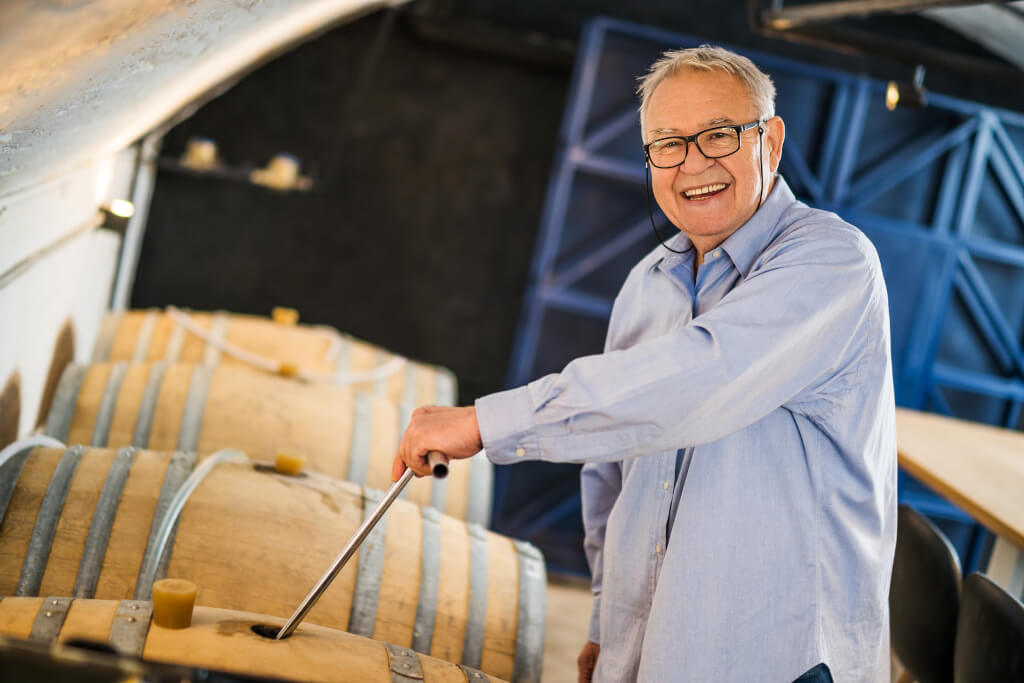Sustainability is an issue that has gained prominence in recent years across many sectors; the whisky industry is no different. Carbon footprint reduction is a top priority for distilleries around the world as consumer demand for eco-friendly products rises. Three renowned distilleries share the details of their eco-friendly efforts, lighting the path toward a greener future in whisky manufacturing.
Barley and Resources in the Age of Bruichladdich
Bruichladdich Distillery is a cutting-edge operation found on the Scottish island of Islay. It comes as no surprise that they are pioneers in the field of whisky sustainability. Here are a few of the main ideas behind their method:
- Local Barley: More than half of Bruichladdich’s barley comes from the island of Islay. As a result, the environmental impact of transportation is greatly diminished.
- Resource Efficiency: Bruichladdich has devised a cutting-edge technology that cleanses and returns nearly all the water used in the distillation process to the neighboring Loch Indaal.
The chief distiller, Adam Hannett, explained, “It’s about doing what’s right, not only for us but for Islay. We need to take care of the environment and our neighbors. Hannett sees sustainability as more than just a change in strategy; it requires an entire mental paradigm shift. When discussing sustainability, he reflects, “It’s not about quick fixes.” It’s about finding common ground with the natural world. While it is helpful to use locally grown barley, it is far more important to learn about the area and its requirements. Bruichladdich has come to understand that when we work in harmony with nature’s cycles, we produce superior whisky and have a positive impact on the natural world.
Harnessing Renewable Energy in Ardbeg
“We’re constantly looking at methods to improve our sustainability,” said Dr. Bill Lumsden, Ardbeg’s Director of Distilling. It’s crucial for whisky’s future. The concept of sustainability goes far beyond the confines of the distillery itself. In his words, “At Ardbeg, we see sustainability as a commitment, not just in our production but in every interaction we have with our surroundings,” he demonstrates his belief in a holistic approach. Every choice matters, from where we get our resources to how we interact with the local community to how we handle our trash. Our biomass boiler is a big step, but it’s the little things we do every day that add up to a brighter, greener future.
- Ardbeg has made significant progress in utilizing renewable energy. Their efforts have revolutionized the distillery and paved the way for others to do the same.
- Ardbeg’s boiler uses biomass fuel instead of fossil fuels, dramatically cutting down on carbon dioxide emissions.
- Like Bruichladdich, Ardbeg places a premium on using locally sourced ingredients to reduce the carbon footprint associated with transporting the finished product.
Kilchoman’s “Farm-to-Glass” Methodology
By keeping everything under one roof, Kilchoman reduces the amount of energy and resources expended on transportation and, by extension, the amount of pollution produced. To prevent the introduction of synthetic pesticides and fertilizers, Kilchoman has set aside certain acres for the cultivation of organic barley.
Another Islay distillery, Kilchoman, takes pride in its distinctive “farm to glass” process. Everything from growing the barley to bottling the finished whisky is done on the premises.
“For us, sustainability isn’t just a buzzword,” said Kilchoman’s founder, Anthony Wills. It’s intrinsic to who we are as a people. We are committed to protecting Islay’s natural splendor for future generations. According to Wills, who is very invested in the topic, sustainability is a crucial component of Kilchoman’s character. When we set out to establish Kilchoman, we had one goal in mind: to create a business whose practices reflected the authenticity of Islay. This necessitated a grounded and natural strategy,” he explains. Today, our farm-to-glass strategy is about more than just saving money. The issue is one of accountability. A significant shift in the industry is possible if every distillery embodies sustainability as an integral element of its mission.
Are You Sure, Sustainability in the Whisky Industry?
This may still be on your mind. It’s still a big mystery that has people leaning in for a closer look. By listening in on interviews with world-famous distilleries’ head blenders, we get a sense of the enthusiasm with which they’re approaching this task.
Ardbeg’s Dr. Bill Lumsden has a broader view of sustainability than most. It’s not something he thinks is limited to making things. Every choice matters, as does every interaction with the environment. Everything has some relation to sustainability, from the source of materials to the involvement in the community. It’s an admirable outlook, and it says a lot about the dedication of the brand. The environmental impact of the industry might be drastically reduced if all distilleries adopted even a portion of this comprehensive strategy.
Bruichladdich’s Adam Hannett made it abundantly obvious that the company views sustainability as more than a fad. The goal is to coexist peacefully with the natural world. It’s not enough to just buy barley grown in the area; we have to learn about and appreciate its ecosystem. And when a distillery takes the time to connect with nature, as Hannett proposes, the end product is a whisky of outstanding quality that is produced in harmony with its natural surroundings. Walking slowly across the fields, taking in the fresh air, and being mindful of your footprints is analogous to this. Is this something that every distillery can do? The groundwork has been laid, but it’s a lofty goal.
Anthony Wills of Kilchoman adds a new dimension to the concept of sustainability. He considers it to be the core essence of what makes Kilchoman unique, rather than merely a responsible action. Taking a “farm-to-glass” strategy is not about conforming to some arbitrary set of criteria. They feel an intense obligation to capture the pristine spirit of Islay in each bottle.
Each master distiller has their take on things, but they all share a dedication to doing what they can to minimize their impact on the environment. Cultural shift, an acceptance that the industry must be courteous and responsible if it is to continue its tradition; not a set of fast fixes.
But can the whisky business as a whole be sustainable? The pioneering efforts of these distilleries show that this is more than simply a remote possibility. A sustainable future for whisky is not out of the question; it may necessitate certain distilleries to reassess their practices, but industry leaders are paving the way.
It is encouraging to see distilleries making serious strides towards sustainability as the global community grows more mindful of environmental concerns. Together, the efforts of these three distilleries demonstrate that fine whisky can be produced in an environmentally responsible manner. Following in their footsteps, the future of whisky appears not only golden but green as well.

